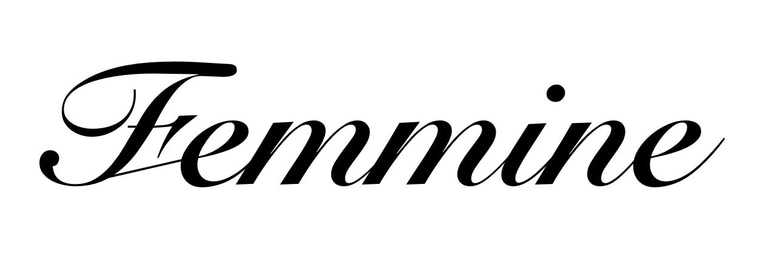Oscars 2025: Breaking Down The Best Picture Lineup
By Jena Lawlor
ENTERTAINMENT
Edited by Charlotte W
2/28/20255 min read


With an interesting lineup for Best Picture this year, it’s easy to feel lost in the chaos of awards season. Some films have dominated the conversation, while others have struggled to gain or maintain public support. That’s why I’m here - to break it down, plain and simple.
In previous seasons, there was often a clear frontrunner or, at the very least, a tight two-horse race. But this year? It’s been unpredictable. Some nominations have flown under the radar of mainstream audiences, barely making an impact on the awards circuit, or several critically acclaimed films from this year received zero nominations - I will touch on those later. And then there are the films that have been surrounded by controversy - whether due to behind-the-scenes drama or lukewarm critical reception.
As it stands, only five films have a legitimate shot at winning Best Picture: Anora, Conclave, The Brutalist, A Complete Unknown, and Emilia Pérez.
Anora – Alex Coco, Samantha Quan, and Sean Baker
If you’ve been anywhere near the film scene this year, you’ve undoubtedly heard of Anora. A gripping, heartfelt story about a sex worker (played by the stunning Mikey Madison) and her whirlwind marriage to Ivan, the reckless son of Russian millionaires. This film took the world by storm, sparking widespread conversation and racking up a staggering 26 Best Picture wins so far. Sean Baker’s signature raw storytelling, combined with the film’s unexpected emotional depth, makes it one of the most talked-about movies of the year. It’s the kind of film that thrives during awards season - character-driven, socially relevant, and deeply human. Given its sweeping success across major awards bodies, it’s safe to say that Anora is the one to beat.
Conclave – Tessa Ross, Juliette Howell, and Michael A. Jackman
A papal thriller set within the secretive walls of the Vatican, Conclave explores the power struggles, hidden agendas, and moral dilemmas surrounding the election of a new pope. With Ralph Fiennes leading an all-star cast, the film expertly balances tension and drama. While Conclave is a compelling watch, some critics argue that it lacks the emotional weight needed to secure Best Picture. It has prestige, strong performances, and sharp direction - but is that enough to outshine the competition?
A Complete Unknown – Fred Berger, James Mangold, and Alex Heineman
Every year, at least one major musical biopic makes it into the race, and this time, it’s A Complete Unknown. Timothée Chalamet takes on the role of Bob Dylan, charting his rise to fame and artistic evolution. If you’ve scrolled through TikTok at all this year, you’ve probably seen the endless edits of Chalamet perfecting the moody folk-star aesthetic. The film has already claimed over ten Best Picture awards worldwide, but in a race this tight, it doesn’t quite have the momentum to take the top prize. It’s a strong contender, but let’s be realistic - if Rocketman couldn’t even secure an Oscar nomination, it’s hard to imagine A Complete Unknown winning Best Picture.
The Brutalist – Nick Gordon, Brian Young, Andrew Morrison, D.J. Gugenheim, and Brady Corbet
A24’s latest offering, The Brutalist, has been divisive. The film follows a visionary architect navigating post-war America, blending stark cinematography with a slow-burning, unconventional narrative. On one hand, it’s an artful and ambitious film, praised by cinephiles as a masterpiece. On the other, it has been criticised for being emotionally detached and inaccessible to general audiences. And then there’s the controversy - allegations that AI was used to alter the actors’ Hungarian dialogue have cast a shadow over its awards run. While it has picked up a handful of festival awards, its chances of winning Best Picture remain slim.
Emilia Pérez – Pascal Caucheteux and Jacques Audiard
And now, the wildcard of the season. Emilia Pérez has been at the centre of multiple controversies - resurfaced offensive tweets from lead actress Karla Sofía Gascón, the use of AI to alter her singing voice in musical numbers, and backlash from Mexican audiences over its portrayal of the cartel. Despite all of this, Emilia Pérez has still managed to win five Best Picture awards, proving that it has its supporters. But let’s be honest - controversy can either propel a film forward or completely derail its chances. In this case, it’s likely the latter.
The Snubs of This Season
This awards season has seen notable omissions in the Best Picture category, particularly with critically acclaimed films like Challengers, A Real Pain, and Sing Sing. Despite their absence from the Academy’s nominations, these films have received significant recognition in other prestigious forums. Challengers secured Best Picture at the 2024 GWNYFCA Film Awards, with director Luca Guadagnino winning Best Director and the film earning Best Original Score from the Denver Film Critics Society. A Real Pain won Best Original Screenplay at both the GWNYFCA and NBP Film Awards, while Sing Sing earned Best Picture at the Latino Entertainment Journalists Association (LEJA) Awards and won Best Actor for Colman Domingo at both the LEJA and Denver Film Critics Society Awards. Their snubs have raised questions about the Academy's selection process, with some pointing to recency bias as a potential factor. Recency bias, the cognitive tendency to prioritize recent experiences over past ones, may have disadvantaged films like Challengers, which premiered earlier in 2024. Additionally, the Academy’s preferential voting system, which requires films to secure a threshold of first-place votes to earn a nomination, may have led to these films being edged out in favour of broader consensus picks.
Controversies and Changes
In contrast, Emilia Pérez has emerged as a contentious nominee, facing criticism for its depiction of trans identities and its portrayal of Mexican culture. Audience reviews have been particularly harsh, with some calling it offensive, distasteful and a total mess. Additionally the film's lead actress, Karla Sofía Gascón, has faced backlash due to past highly offensive social media posts. Beyond that, broader concerns about the use of generative AI in films like The Brutalist and Emilia Pérez have also dominated discussions this year. Several nominated films have been scrutinized for their reliance on AI-generated effects, raising ethical questions about automation in Hollywood, and whether artificially generated art should even be considered real art. Additionally, changes in the Academy’s voting process this year may have contributed to the surprising nominations. While the Best Picture category still uses a preferential system, a shift in how branch members select nominees in other categories has led to speculation that films with industry-driven narratives, like Emilia Pérez, benefited from strategic campaigning. These factors have fueled debates over whether this year’s nominations reflect genuine artistic merit or behind-the-scenes campaigns within the industry.
The Race to Best Picture: A Numbers Game
There is no definitive way to predict a Best Picture winner - after all, art is subjective. If we based it purely on box office numbers, Wicked would be the clear frontrunner, having grossed over $718 million. If audience scores dictated the outcome, I’m Still Here (96% on Rotten Tomatoes, 98% audience rating) would be unbeatable.
But for those of us trying to make a calculated prediction, I present what I call "The Big Three Winning System" - a method that tallies the Best Picture winners at the Producers Guild Awards, Critics’ Choice Awards, and Golden Globes. The logic? These three awards often predict the Oscars' outcome, as they reflect industry sentiment towards each film. And by this system, the winner is clear: Anora. It took home Best Picture at all three, making it the strongest contender by far.
I’m not here to impose my opinion on anyone this awards season - just offering insight into why some films are gaining traction, and whether that attention is necessarily good or bad.
©Academy of Motion Picture Arts and Sciences
For more, explore fashion, travel, and lifestyle insights here.
Subscribe to our newsletter!
info@femmine.co.uk
